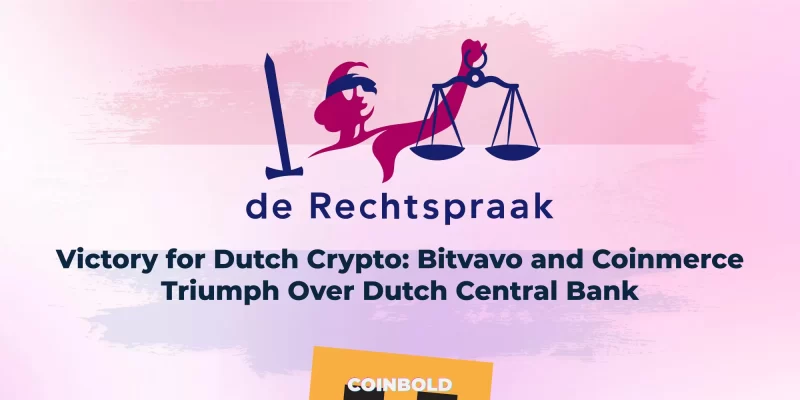In a David-versus-Goliath scenario, two Dutch cryptocurrency firms, Bitvavo and Coinmerce, have emerged victorious in a legal battle against the formidable Dutch Central Bank (DNB). The backdrop of this legal saga is a demand by the DNB for a hefty sum of €2.3 million from these companies in 2021 for registration under anti-money laundering regulations.

The Rotterdam court, in a landmark decision, has declared that the DNB overstepped its authority by imposing such a substantial financial burden on Bitvavo and Coinmerce. The ruling sends a clear message that regulatory bodies must adhere to the rule of law and exercise their powers judiciously.
The crux of the matter was that the DNB’s registration process did not align with the EU anti-money laundering legislation, which specifically applies to cryptocurrency entities. Consequently, the court has deemed it unlawful to levy these fees for the year 2021. It’s a significant win for Bitvavo and Coinmerce, who stood their ground in the face of regulatory pressure.
However, it’s essential to note that this ruling does not exempt these companies from oversight. The court’s decision focuses specifically on the fees imposed in 2021, leaving fees for 2020 and ongoing legal battles regarding 2022 untouched.
This legal maneuver comes at a time when the Netherlands has been enacting some of the strictest cryptocurrency regulations globally. The stringent regulatory environment has prompted notable exchanges like Gemini to exit the Dutch market, while others, like Binance, have redirected their Dutch clientele to platforms like Coinmerce.
In light of this ruling, cryptocurrency companies operating within the Netherlands have reason to celebrate. It underscores the importance of upholding legal standards and ensuring that regulatory bodies operate within the bounds of the law. The decision sets a precedent that could influence future regulatory actions in the ever-evolving cryptocurrency landscape.
For now, Bitvavo, Coinmerce, and the broader crypto community in the Netherlands can savor this legal triumph as a testament to the resilience of the crypto industry in the face of regulatory challenges. It’s a victory that reinforces the principle that fair and just regulation is the cornerstone of a healthy and thriving cryptocurrency ecosystem.


